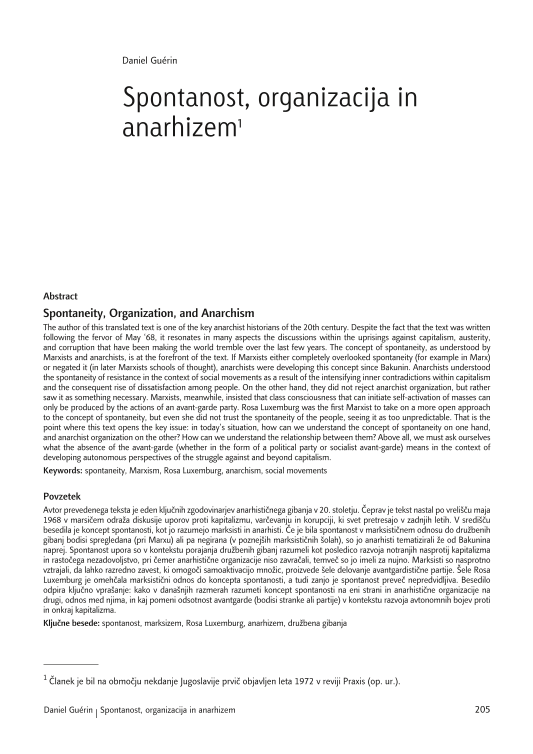The author of this translated text is one of the key anarchist historians of the 20th century. Despite the fact that the text was written following the fervor of May ‘68, it resonates in many aspects the discussions within the uprisings against capitalism, austerity, and corruption that have been making the world tremble over the last few years. The concept of spontaneity, as understood by Marxists and anarchists, is at the forefront of the text. If Marxists either completely overlooked spontaneity (for example in Marx) or negated it (in later Marxists schools of thought), anarchists were developing this concept since Bakunin. Anarchists understood the spontaneity of resistance in the context of social movements as a result of the intensifying inner contradictions within capitalism and the consequent rise of dissatisfaction among people. On the other hand, they did not reject anarchist organization, but rather saw it as something necessary. Marxists, meanwhile, insisted that class consciousness that can initiate self-activation of masses can only be produced by the actions of an avant-garde party. Rosa Luxemburg was the first Marxist to take on a more open approach to the concept of spontaneity, but even she did not trust the spontaneity of the people, seeing it as too unpredictable. That is the point where this text opens the key issue: in today’s situation, how can we understand the concept of spontaneity on one hand, and anarchist organization on the other? How can we understand the relationship between them? Above all, we must ask ourselves what the absence of the avant-garde (whether in the form of a political party or socialist avant-garde) means in the context of developing autonomous perspectives of the struggle against and beyond capitalism.




